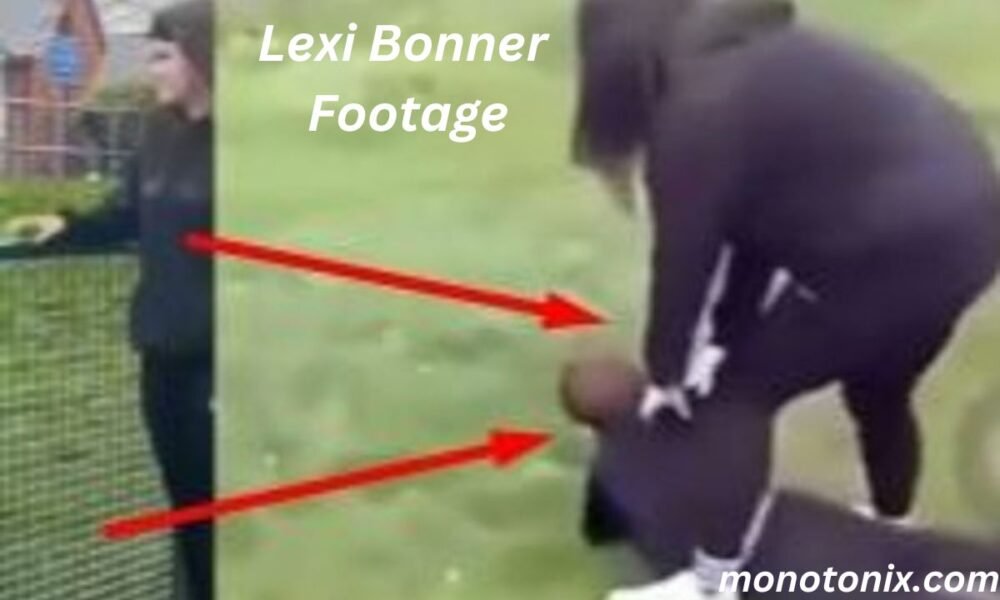Introduction
In the digital age, the phrase “Lexi Bonner footage” has become a topic of intrigue and speculation. This term refers to a series of video clips featuring Lexi Bonner, whose story has captivated the online community. The footage has sparked numerous discussions, ranging from its authenticity to its implications on privacy and ethics in the digital realm. This article aims to delve into the phenomenon of Lexi Bonner footage, examining its origins, impact, and the broader issues it raises in the context of digital media.
The Origins of Lexi Bonner Footage
Who is Lexi Bonner?
Lexi Bonner is an ordinary individual who became an internet sensation overnight due to a series of video clips that surfaced online. Before the footage gained notoriety, Lexi led a relatively private life, with little to no presence in the public eye. The sudden fame brought about by these videos turned her life upside down, raising questions about privacy, consent, and the power of viral media.
The Emergence of the Footage
The Lexi Bonner footage first appeared on social media platforms, shared by an anonymous user. The videos quickly went viral, garnering millions of views and sparking widespread curiosity. The clips showed Lexi in various settings, often engaging in mundane activities. However, the context and the person behind the camera remained a mystery, adding to the intrigue.
The Content of the Footage
Analyzing the Videos
The Lexi Bonner footage comprises a series of short videos, each capturing different moments of Lexi’s life. Some clips show her at home, while others depict her in public places. The content ranges from her performing daily routines to more personal moments. The authenticity and candid nature of the footage have led many to believe that the videos were taken without Lexi’s knowledge or consent.
Public Reactions
Public reaction to the Lexi Bonner footage has been mixed. Some viewers are fascinated by the candid glimpse into Lexi’s life, while others express concern over the potential invasion of her privacy. The footage has sparked debates on social media, with users questioning the ethical implications of sharing and viewing such content. Despite the controversy, the videos continue to attract attention, highlighting society’s complex relationship with privacy and digital media.
The Ethical Implications
Privacy Concerns
One of the primary concerns surrounding the Lexi Bonner footage is the invasion of privacy. If the videos were indeed taken without Lexi’s consent, it raises serious ethical and legal issues. The right to privacy is a fundamental human right, and the unauthorized recording and sharing of personal moments violate this principle. The case of Lexi Bonner underscores the need for stricter regulations and awareness about privacy in the digital age.
Consent and Ethics
The concept of consent is central to the ethical debate around the Lexi Bonner footage. Consent involves giving permission for something to happen, and in the context of video recordings, it means agreeing to be filmed and have the footage shared. If Lexi did not consent to the videos being taken or shared, it constitutes a breach of her autonomy and dignity. This scenario highlights the importance of respecting individuals’ rights and obtaining explicit consent before recording or disseminating personal content.
The Role of Social Media
The Power of Virality
The rapid spread of the Lexi Bonner footage exemplifies the power of virality in the digital age. Social media platforms enable content to be shared and viewed by millions of people within a short span of time. While this can be a powerful tool for spreading information and raising awareness, it also poses risks, especially when it comes to personal and sensitive content. The case of Lexi Bonner illustrates how quickly and uncontrollably personal footage can circulate online, often with little regard for the individual’s privacy and consent.
Platform Responsibility
Social media platforms play a significant role in managing and moderating content. In the case of the Lexi Bonner footage, questions have been raised about the responsibility of platforms in preventing the spread of unauthorized and potentially harmful content. While platforms have policies and mechanisms in place to address such issues, the effectiveness and enforcement of these measures are often called into question. The Lexi Bonner incident highlights the need for platforms to enhance their content moderation strategies and protect individuals’ privacy rights.
Legal Perspectives
Existing Laws and Regulations
The unauthorized recording and sharing of personal footage fall under the purview of privacy and data protection laws. Different countries have varying legal frameworks to address these issues. In the case of Lexi Bonner, the application of these laws depends on the jurisdiction in which the footage was taken and shared. Generally, privacy laws prohibit the recording and dissemination of personal content without consent, and violators can face legal consequences.
Legal Recourse for Lexi Bonner
If Lexi Bonner decides to pursue legal action, she may have several avenues for recourse. She could file a lawsuit for invasion of privacy, seeking damages for the unauthorized recording and sharing of her personal moments. Additionally, she could pursue claims for emotional distress and violation of her rights. Legal action could also serve as a deterrent, sending a strong message about the consequences of violating individuals’ privacy.
The Impact on Lexi Bonner
Personal and Emotional Effects
The sudden exposure brought about by the Lexi Bonner footage likely had profound personal and emotional effects on her. The invasion of privacy, coupled with the public scrutiny and attention, can be overwhelming and distressing. Lexi may have experienced feelings of vulnerability, anxiety, and loss of control over her personal life. Understanding and acknowledging the impact on Lexi is crucial in addressing the broader issues raised by the footage.
Public Support and Backlash
Public reaction to Lexi Bonner’s situation has been a mix of support and backlash. While some people empathize with her plight and advocate for her privacy rights, others are more critical or indifferent. The polarized reactions reflect the complexities of public perception in the digital age. Lexi’s experience underscores the need for greater awareness and sensitivity towards individuals affected by unauthorized recordings and the spread of personal content.
Broader Implications
Digital Privacy
The Lexi Bonner footage serves as a stark reminder of the challenges associated with digital privacy. In an era where cameras are ubiquitous and content can be shared instantly, protecting personal privacy has become increasingly difficult. The incident highlights the importance of establishing robust privacy protections and educating individuals about their rights and the potential risks of digital exposure.
Ethical Standards in Media
The ethical standards in media and journalism are also brought into focus by the Lexi Bonner case. Journalists and content creators have a responsibility to uphold ethical principles, including respecting privacy and obtaining consent. The incident prompts a re-evaluation of these standards, emphasizing the need for ethical guidelines that address the unique challenges of the digital age.
Moving Forward
Raising Awareness
One of the key steps in addressing the issues raised by the Lexi Bonner footage is raising awareness. Educating the public about privacy rights, the importance of consent, and the ethical implications of sharing personal content is essential. Awareness campaigns can help foster a culture of respect and responsibility in the digital realm, reducing the likelihood of similar incidents in the future.
Enhancing Legal Protections
Strengthening legal protections for digital privacy is another critical measure. Governments and regulatory bodies need to update and enforce privacy laws to address the challenges posed by new technologies and social media. Clear guidelines and stringent penalties for violations can act as deterrents, ensuring that individuals’ privacy rights are safeguarded.
Supporting Affected Individuals
Providing support to individuals affected by unauthorized recordings and digital exposure is crucial. This support can come in various forms, including legal assistance, counseling, and public advocacy. Ensuring that affected individuals have access to the resources and support they need can help them navigate the emotional and legal complexities of their situation.
YOU MAY ALSO LIKE;
Meet Your Future Baby with babyAC’S AI Magic
Conclusion
The Lexi Bonner footage phenomenon encapsulates the complexities and challenges of privacy, consent, and ethics in the digital age. It serves as a poignant reminder of the need for greater awareness, stronger legal protections, and ethical standards in media and journalism. By addressing these issues, society can better navigate the intricacies of digital privacy and ensure that individuals’ rights are respected in an increasingly interconnected world.
FAQs
- Who is Lexi Bonner?
- Lexi Bonner is an individual who gained internet fame due to a series of unauthorized video clips that were shared online, sparking widespread curiosity and ethical debates.
- What is the content of the Lexi Bonner footage?
- The footage includes various moments of Lexi’s daily life, both at home and in public, and is believed to have been taken without her knowledge or consent.
- What are the privacy concerns related to the Lexi Bonner footage?
- The primary privacy concern is the unauthorized recording and sharing of personal moments, raising serious ethical and legal issues about consent and invasion of privacy.
- How has social media impacted the spread of Lexi Bonner footage?
- Social media platforms enabled the rapid viral spread of the footage, highlighting both the power of virality and the need for better content moderation and privacy protections.
- What legal actions can Lexi Bonner take?
- Lexi can pursue legal action for invasion of privacy, seeking damages and potentially filing claims for emotional distress and rights violations.











